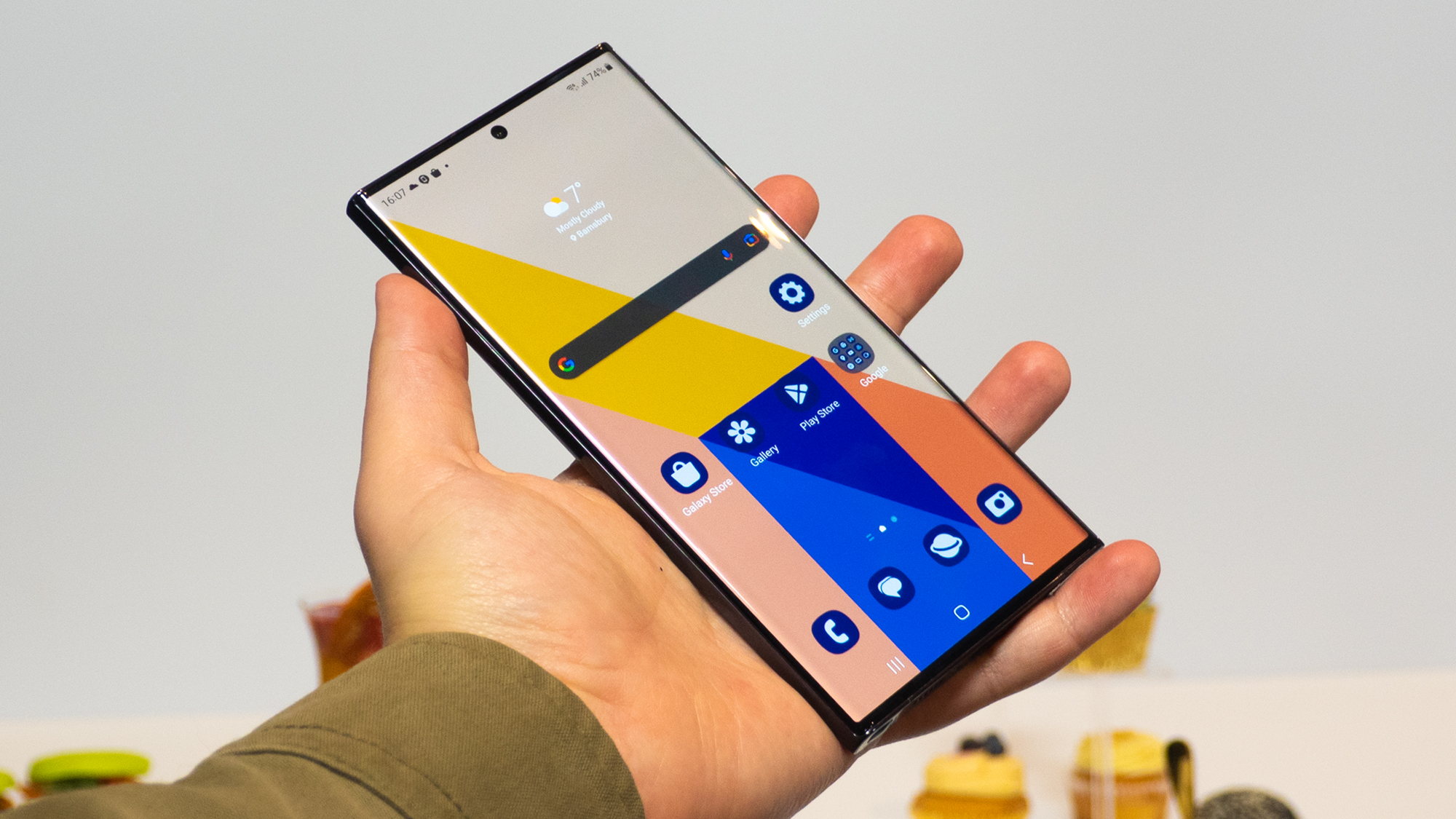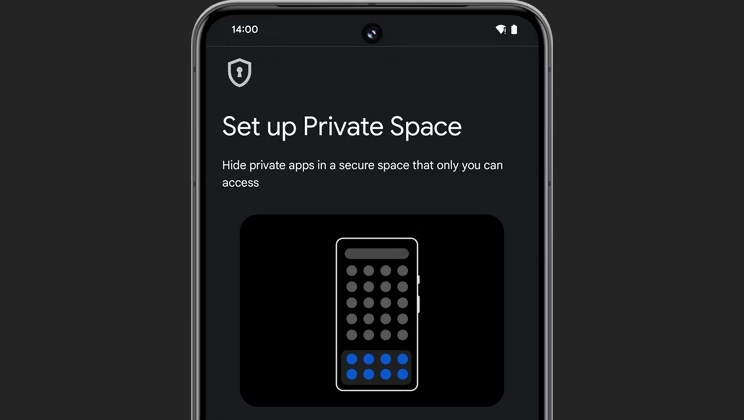
Details have surfaced of a new but as yet unreleased privacy feature for Android 15 called Private Space, which appears to provide a separate locked profile to keep your private data and apps safe.
Android Authority’s detailed analysis of the most recent Quarterly Platform Releases of Android 14 indicates how the feature could work if and when it rolls out to devices.
Private Space was initially believed to function like Samsung's Secure Folder by giving you a single dedicated folder in which to store files. However, it appears to be much more than that, in that it creates a secure profile on your device to not only store files but also hide selected apps and notifications, unless it is explicitly unlocked. The profile can be hidden at any time, and requires biometrics or a PIN, pattern, or password to access once set up.

Android Authority has also seen setup screens for the new feature – these appear after a new OS update or Pixel feature drop to guide users through setting up new features.
The first of these setup screens recommends that you create a new, separate Google account for using Private Space. This allows you to keep apps and their data separate from your main Google account that runs on your Android device.
More importantly, it prevents data associated with the private Google account, such as synced photos, files, emails, contacts, calendar events, or information like app download history, browsing history, bookmarks, saved passwords, and suggested content, from showing up in your main Google account.
Another setup screen explains that users don’t need to download Google Play for their Private Space profile, as it already appears to have a separate Play Store installed. However, this is isolated from the Play Store and Google account normally associated with your device.
It’s currently unclear if the apps already paid for by the main Google account will appear in the Private Space. However, it’s unlikely, as these two Google accounts would need to remain unconnected to keep all associated data safe.
It's been a while since I took a look at Android 15's new Private Space feature, which is basically Google's version of Samsung's Secure Folder.Since I last covered it, Google updated the setup and added two new settings.Full details + screenshots👇https://t.co/Yb1I4a6r2NApril 3, 2024
Using a separate Google account in Private Space will apparently allow you to download and hide apps that you don’t want anyone else who’s using your phone to see or use. The setup messages also explain that your Private Space cannot be transferred to another device, and that using it on a different device will require you to go through the setup process again.
Get daily insight, inspiration and deals in your inbox
Sign up for breaking news, reviews, opinion, top tech deals, and more.
It also warns that connecting your Android device to a PC could provide access to your Private Space, which means Android 15 will also try to verify your identity when connected to a PC.
You’ll also be asked whether you want to use your existing lock screen or set up a new one, potentially using a different PIN, pattern, or password, or registering a new fingerprint.
Taking control of your Private Space
According to Android Authority, once set up, you can access the settings for your Private Space by going to Settings > Security & Privacy > Private Space. From here, you can select your lock screen, prevent notifications from showing on the lock screen, and select when to lock your Private Space automatically. You can also prevent Private Space from appearing in your app list when locked, or you can delete the current Private Space.
Private Space is expected to be part of the full Android 15 release, which we could see rolling out to devices around August to October. However, due to the heavy integration with the Pixel Launcher, it could be a Google Pixel-exclusive feature, at least for now.
If Private Space is indeed coming with Android 15, we’d expect to learn more about it, and other new Android features, at the upcoming Google I/O 2024 event on May 14.
You might also like
James Ide was a writer for TechRadar specializing in phones and tablets, having previously worked at The Daily Mirror since 2016, covering news and reviews.
James loves messing with the latest tech, especially phones due to their incredibly rapid pace of development.
When not surrounded by various devices and/or tinkering with gadgets while putting them through their paces, James has a love of handheld consoles.
He is almost the textbook definition of a geek, who loves sci-fi, comics, games and of course, all things tech. If you think you have a story for him or just want to challenge him at Smash Bros, get in touch.